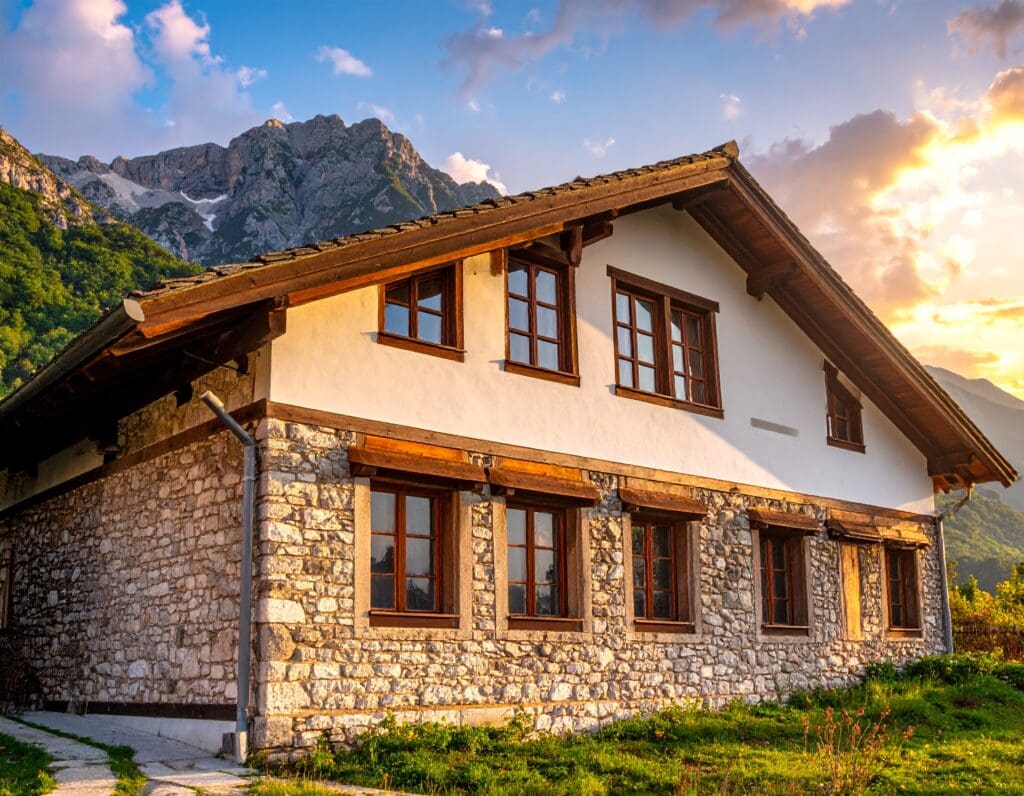Albania is home to a rich architectural heritage, from Ottoman-era stone houses to 19th-century townhouses and protected cultural sites. While preserving these buildings is vital for history and tourism, it presents significant challenges for homeowners, municipalities, and conservationists alike. Many historic windows are inefficient, allowing heat to escape in winter and unwanted warmth to enter in summer, creating uncomfortable interiors and high energy costs. Glazing for historic buildings Albania, specifically vacuum glazing, offers a modern solution that improves energy efficiency while respecting the aesthetics and integrity of heritage properties.

Protecting Albania’s Architectural Heritage
One of the primary concerns when retrofitting historic buildings is maintaining their traditional appearance. Thick double glazing or bulky replacements can alter the visual character of windows, which is often protected under conservation regulations. Vacuum glazing provides an elegant alternative: it is ultra-thin, almost identical in appearance to original single-pane windows, but delivers performance comparable to high-quality double or triple glazing. This allows homeowners and municipal authorities to preserve the original charm of historic properties, from the cobblestone streets of Gjirokastër to the Ottoman-era homes in Berat, without compromising on modern comfort or efficiency.
Energy Efficiency Without Compromise
Historic buildings often suffer from draughts and poor thermal performance, making them expensive to heat in winter and uncomfortable during summer heatwaves. Vacuum glazing solves these problems by creating a near-perfect thermal barrier, reducing heat loss in winter and blocking excessive solar heat in summer. The result is stable indoor temperatures, improved comfort, and significant reductions in energy consumption. This type of glazing is particularly effective in Albania, where energy costs are rising and households are looking for sustainable solutions that respect the building’s character.
Benefits for Conservationists and Municipalities
Municipal authorities and conservationists face the dual challenge of protecting heritage sites while promoting sustainable energy use. Installing vacuum glazing allows compliance with preservation standards, as it does not alter the external appearance of windows, while meeting modern energy efficiency requirements. It is also a practical solution for public buildings, historic town halls, and cultural institutions, enabling long-term energy savings and improved comfort for occupants. This balance of preservation and efficiency makes vacuum glazing a forward-thinking choice for cities and towns committed to maintaining Albania’s cultural legacy.
A Sustainable Choice for Heritage Property Owners
For private property owners, vacuum glazing offers not only energy efficiency but also low maintenance and durability. Unlike older window units that may require frequent repair, vacuum glazing is robust and long-lasting, ensuring that heritage homes remain comfortable and functional for decades. The reduced energy demand translates into lower heating and cooling costs, while the environmentally friendly design supports Albania’s gradual alignment with EU sustainability goals. By investing in glazing for historic buildings Albania, homeowners protect both their heritage property and their wallet, while contributing to a greener future.
Conclusion: Modern Energy Efficiency Meets Heritage Preservation
Vacuum glazing represents the perfect compromise for Albania’s historic buildings, providing modern energy efficiency without altering architectural character. Whether for private homes, municipal buildings, or protected cultural sites, glazing for historic buildings Albania ensures year-round comfort, lower energy costs, and long-term sustainability. For conservationists, municipalities, and heritage property owners, it is the smart choice to preserve the past while embracing the benefits of modern technology. Consulting with glazing experts can help identify the best solutions for retrofitting historic windows with minimal disruption and maximum performance.